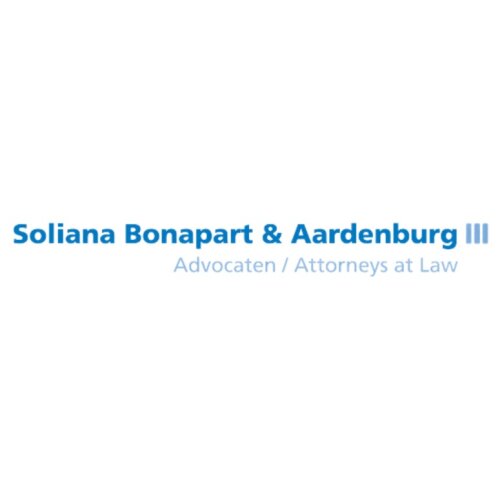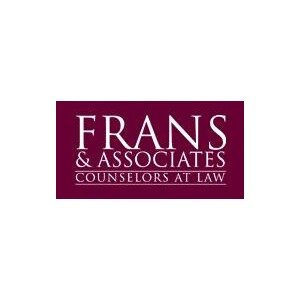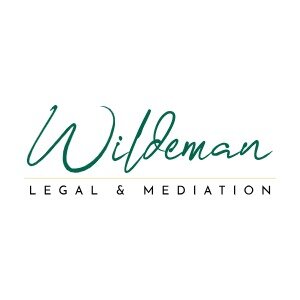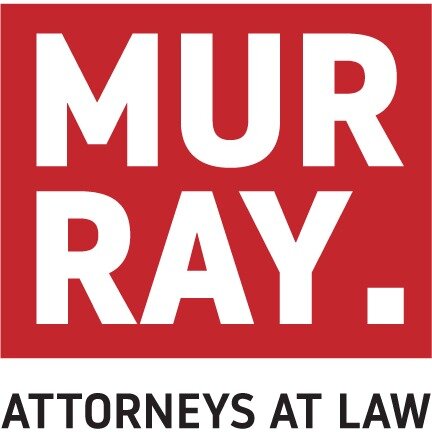Best Energy, Environment & ESG Lawyers in Willemstad
Share your needs with us, get contacted by law firms.
Free. Takes 2 min.
List of the best lawyers in Willemstad, Curaçao
About Energy, Environment & ESG Law in Willemstad, Curaçao
Energy, Environment and ESG (Environmental, Social and Governance) law in Willemstad, Curaçao is a specialized area dealing with the legal aspects of energy production, consumption, environmental protection, and sustainability practices. With its strategic location in the Caribbean and reliance on tourism, shipping, and oil refining, Curaçao has developed regulations to encourage sustainable development and safeguard the environment. The government and regulatory agencies have increased their focus on renewable energy, waste management, water conservation, and corporate governance to align with global ESG trends. These laws impact not just large corporations but also individuals, small businesses, and property owners in Willemstad.
Why You May Need a Lawyer
There are several instances where legal guidance is essential in the realm of Energy, Environment and ESG in Willemstad, Curaçao. Individuals and businesses may need a lawyer to:
- Navigate complex energy supply and consumption regulations
- Obtain permits or licenses for energy generation, waste disposal or water use
- Comply with emissions, noise, or waste management standards
- Understand the implications of new or proposed developments on the environment
- Resolve disputes involving land use, environmental damage or pollution claims
- Meet ESG reporting standards for companies and investment projects
- Facilitate transactions involving renewable energy assets
- Challenge or appeal regulatory decisions by authorities
- Ensure compliance in real estate matters that affect or are affected by energy and environmental policies
- Manage risks related to liability for environmental contamination
Legal professionals with expertise in this field can provide clarity on regulatory requirements, offer representation in disputes, and help clients safeguard their operations and reputation.
Local Laws Overview
Curaçao operates as an autonomous country within the Kingdom of the Netherlands and has its unique legal framework influenced by Dutch law. Below are key aspects of local laws relevant to Energy, Environment and ESG:
- Environmental Regulations: The Ministry of Public Health, Environment and Nature oversees environmental legislation covering water quality, waste management, air emissions, and remediation of contaminated sites. Key laws include the National Ordinance on the Environment and the National Ordinance on Waste Material.
- Energy Policy: The energy sector is regulated to balance energy security with sustainability. The government encourages investment in renewable energy such as solar and wind, alongside existing fossil-fuel resources. Licensing and oversight fall under the Bureau Telecommunication and Post (BTP) and other ministries.
- Building and Zoning Laws: New construction or modification of existing structures must comply with environmental impact assessments (EIA) and building codes that reflect ESG concerns.
- Corporate ESG Reporting: Larger entities are expected to align with international ESG standards and good corporate governance. While mandatory reporting requirements may vary, transparency in environment and governance practices is increasingly emphasized.
- International Agreements: Curaçao is bound by select international treaties and agreements on climate change, maritime protection, and biodiversity, as extended by the Kingdom of the Netherlands.
Frequently Asked Questions
What permits are needed to start a renewable energy project in Willemstad?
Depending on the scale and type of project, permits from the Ministry of Traffic, Transport and Spatial Planning or the Ministry of Public Health, Environment and Nature may be required. Energy grid connection and environmental assessments may also be mandatory.
How can I report an environmental violation in Willemstad?
You can file a complaint with the Ministry of Public Health, Environment and Nature or contact local authorities who handle environmental compliance and enforcement.
Are there incentives for businesses to invest in renewable energy?
Yes, Curaçao offers some tax incentives, grants, and regulatory support to companies investing in solar, wind, and waste-to-energy projects. A lawyer can help you understand eligibility and application procedures.
Who regulates water and air quality in Willemstad?
The Ministry of Public Health, Environment and Nature is the key regulatory body for water and air quality standards in Curaçao. There are ordinances that set specific thresholds for pollution and resource use.
Do real estate developments require environmental assessments?
Yes, major developments and changes to land use often require an Environmental Impact Assessment (EIA) and compliance with zoning laws to minimize negative effects on the environment.
What are ESG requirements for companies in Curaçao?
While local law may not mandate detailed ESG reporting for all businesses, companies are increasingly adopting ESG standards, particularly if they operate internationally or seek investment. Governance, risk management, and environmental performance are key focus areas.
Can I challenge a government decision related to environmental permits?
Yes, individuals and organizations have the right to appeal or challenge administrative decisions concerning permits or enforcement actions. Legal guidance is recommended for such procedures.
How are waste management laws enforced?
Waste management is strictly regulated, especially for hazardous and industrial waste. The government conducts inspections and can impose penalties for violations ranging from fines to operational suspension.
Is it possible to get legal aid for environmental disputes?
Depending on your financial situation and the specifics of the case, legal aid may be available. Some non-governmental organizations also offer pro bono assistance or support in environmental matters.
Are there special regulations for businesses near the shoreline in Willemstad?
Yes, coastal areas are subject to additional regulations to prevent erosion, protect marine life, and mitigate flooding risks. Land use and construction may be limited closer to the shoreline.
Additional Resources
The following organizations and government bodies are useful points of contact for those seeking information or support in Energy, Environment and ESG matters in Willemstad, Curaçao:
- Ministry of Public Health, Environment and Nature (Volksgezondheid, Milieu en Natuur - VMIN)
- Bureau Telecommunication and Post (BTP)
- Ministerie van Verkeer, Vervoer en Ruimtelijke Planning (Ministry of Traffic, Transport and Spatial Planning)
- Curacao Bar Association (Orde van Advocaten Curacao)
- Local chapters of NGOs focused on environmental protection and sustainability
- Chamber of Commerce for information on sustainable business regulations and incentives
- Curaçao Innovation & Technology Institute for renewable energy and innovation support
Next Steps
If you believe you need legal advice on Energy, Environment or ESG matters in Willemstad, Curaçao, start by clearly outlining your issue or objectives. Gather any relevant documents such as permits, correspondence with regulatory authorities, contracts or corporate policies. Consult the Curaçao Bar Association or trusted referrals to find a local lawyer with expertise in this field. Prepare a list of questions and ensure that your legal advisor has experience with the relevant aspects of your case, especially regarding Curaçao's unique regulatory environment. For complex cases, consider seeking advice from both legal and technical experts. Early consultation with a lawyer can help you navigate compliance, avoid penalties, and ensure that your business or personal activities are aligned with current laws and future sustainability trends.
Lawzana helps you find the best lawyers and law firms in Willemstad through a curated and pre-screened list of qualified legal professionals. Our platform offers rankings and detailed profiles of attorneys and law firms, allowing you to compare based on practice areas, including Energy, Environment & ESG, experience, and client feedback.
Each profile includes a description of the firm's areas of practice, client reviews, team members and partners, year of establishment, spoken languages, office locations, contact information, social media presence, and any published articles or resources. Most firms on our platform speak English and are experienced in both local and international legal matters.
Get a quote from top-rated law firms in Willemstad, Curaçao — quickly, securely, and without unnecessary hassle.
Disclaimer:
The information provided on this page is for general informational purposes only and does not constitute legal advice. While we strive to ensure the accuracy and relevance of the content, legal information may change over time, and interpretations of the law can vary. You should always consult with a qualified legal professional for advice specific to your situation.
We disclaim all liability for actions taken or not taken based on the content of this page. If you believe any information is incorrect or outdated, please contact us, and we will review and update it where appropriate.
Browse energy, environment & esg law firms by service in Willemstad, Curaçao
Willemstad, Curaçao Attorneys in related practice areas.













